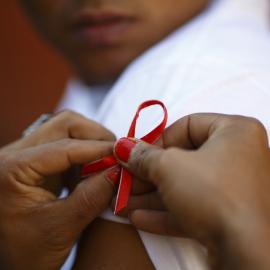The World Health Organization’s newly elected director general, Tedros Adhanom Ghebreyesus, points out that epidemics and pandemics are a major threat to global health “because viruses don’t respect borders, and they don’t need visas” (“Global Health Gets a Checkup,” September/October 2017). He also mentions that the core mission of the WHO is to increase health coverage so as to achieve the Sustainable Development Goals’ aim to “leave no one behind.” His efforts, however, could be undermined by political interference.
For years, Taiwan has been excluded from the WHO. Continuing this practice will not serve Tedros’ purposes well. Taiwan has one of the world’s best universal health-care systems, which offers reasonably priced, high-quality care, with a coverage rate of 99 percent of the population and short waiting times. Taiwan could do a lot to help the WHO speed up the expansion of health coverage, and many countries could benefit from Taiwan’s know-how and medical expertise.
During the Ebola and MERS outbreaks in 2015, for example, Taiwan joined forces with the United States to hold training courses for medical personnel in Asia. It also donated funding and medical equipment to the U.S. Centers for Disease Control and Prevention to fight Ebola.
If the WHO is serious about preventing epidemics and closing the gaps in global health coverage, it should not let any member states dictate its actions. The WHO should adhere to its principles, convey its professional concerns honestly to its members, and refuse to succumb to political pressure to exclude anyone.
Brian Su
Deputy Director General, Taipei Economic and Cultural Office, New York
